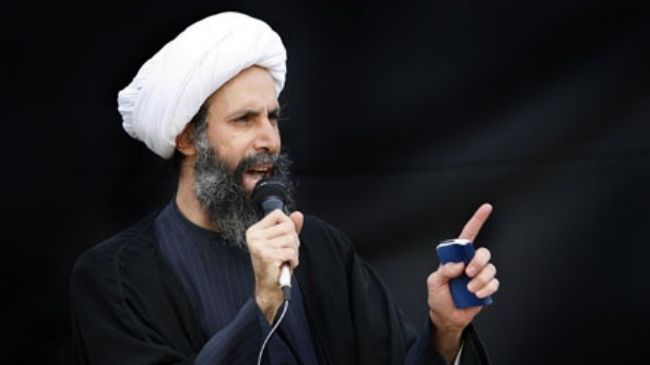Alef has posted on its website a news report from Tasnim News Agency on a death sentence issued for Sheikh Nimr al-Nimr, a top Saudi Shiite cleric who has been so far detained and imprisoned three times by Saudi security forces. The following is the translation of the report and of two comments Iranian viewers posted:
“ … The Saudi prosecutor general called, on March 25, for the implementation of the Moharebeh [waging war against God] sentence for Ayatollah Sheikh Nimr al-Nimr on unfounded charges such as fanning the flames of religious sedition, meeting with people who are wanted by the government, inciting people to kill [fellow] citizens and security forces, and destroying mosques, during his sermons at Friday prayers.”
Sheikh Nimr al-Nimr was first arrested in 2006 when he was returning from Bahrain for attending an International Koran competition. The second arrest came on August 23, 2008, when he was in Al-Qatif [in Eastern Province, Saudi Arabia] for instigating Saudi Shiites to ask for the secession of the Shiite-majority governorate from the federal government. The top Shiite cleric was apprehended and placed behind bars for a third time in July 2012 after he was attacked by Saudi security forces. He received a leg injury during the attack.
The Saudi prosecutor called in the first hearing for capital punishment in the case of the Shiite cleric.
What motivated IFP to release this report were online comments by two Alef visitors in reaction to the story:
Hamid: We don’t meddle in the internal affairs of other countries. Saudi Arabia carries out only about 60 executions per year and this is not a high number.
Unnamed: Hamid, [Now that you so avidly support Saudi Arabia] why don’t you ask if the Saudi embassy is hiring?
However, it should be noted that most viewers who posted a comment have expressed dismay and objection to the death sentence handed down in the case.
You may share this idea that the release of such comments could help the audience develop a better understanding of the atmosphere of Iranian society, its media and more importantly how Iranians think about world affairs.
